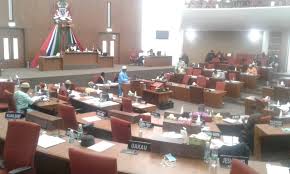
“The law should consider giving the Anti-Corruption Commission the jurisdiction to regulate, ensure compliance and accountability in Campaign Financing. The expansion of the scope of vote buying and community developments that are election centric (close to election day) and the auditing and publication of party/candidate campaign financial statements, should be included in the Campaign Financing law,” according to the statement.
The statement highlighted that “as the 2026-2028 electoral cycle approaches, the National Assembly must prioritise legislative and constitutional reform. The Elections Bill, 2020 should be prioritised without further delay.”
They commend the professionalism and neutrality of security personnel in dealing with electoral-related matters. And encourage rights-based crowd control mechanisms by the security on subsequent elections.
They recommend the IEC to publish results on their website as soon as the official results are announced. “The IEC should ensure that voting instructions at polling units are visible and readable.”
“The voting instructions should be in colored picture, which is more reader friendly as compared to the black and white printed photo instructions.”
They underscored that “voter verification was strictly enforced, with all voters required to present a valid voter’s card before casting their ballot. Each party agent was given a copy of the voter roll to cross-check the name of each voter before casting their votes.”
“At least 3 voters were not allowed to vote because they presented invalid (expired) voter’s card. One individual was also denied voting because she is not a registered voter under Half Die Ward.”
They conclude that the outcome of the election reflected the will of voters in Half Die. The electoral process was transparent, free, and fair.





